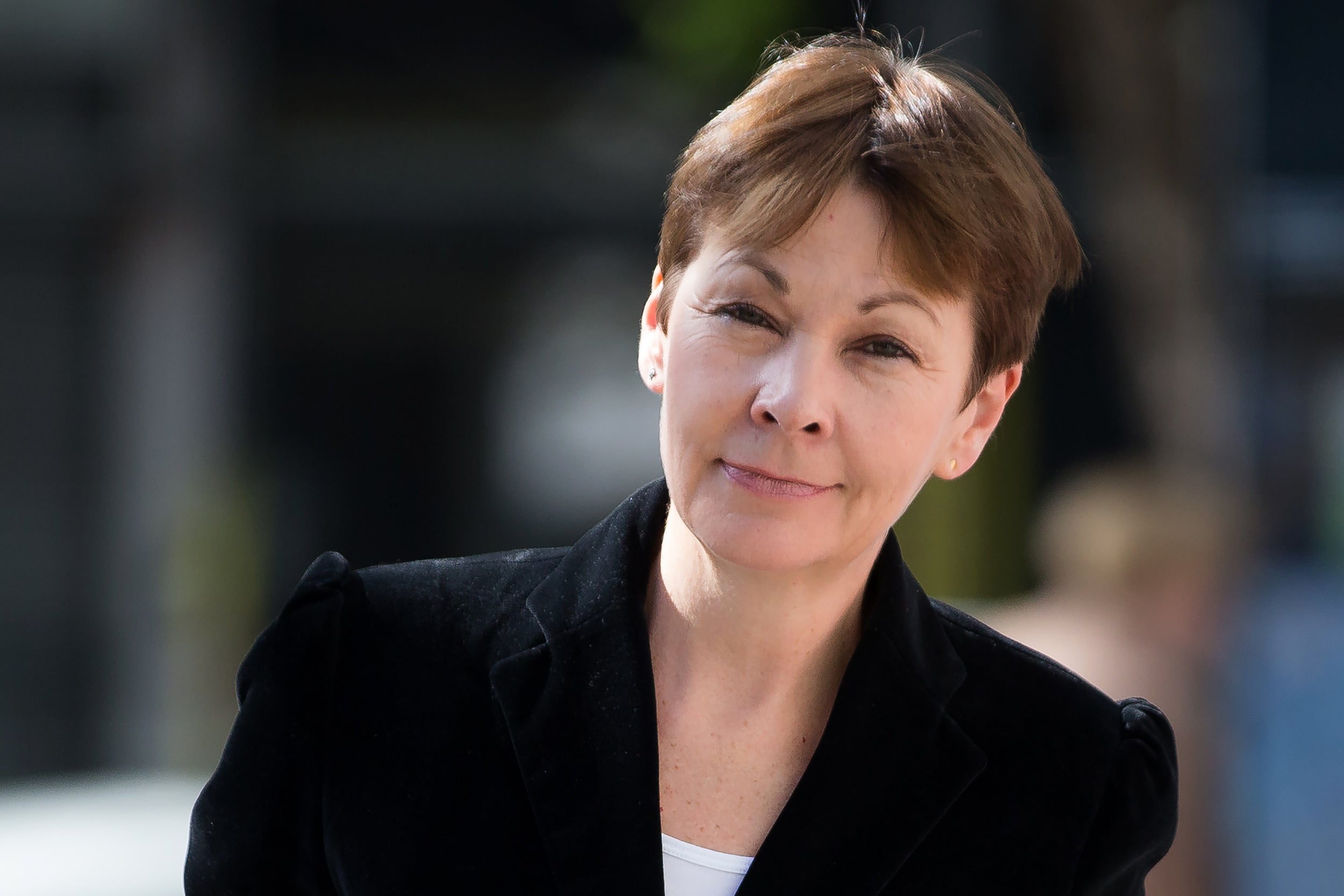Addicts should be able to take banned substances without fear of prosecution in 'drug consumption rooms', says MP
Caroline Lucas argues creation of spaces where addicts can legally inject or inhale illicit substances would help reduce drug-related harm across UK

Your support helps us to tell the story
From reproductive rights to climate change to Big Tech, The Independent is on the ground when the story is developing. Whether it's investigating the financials of Elon Musk's pro-Trump PAC or producing our latest documentary, 'The A Word', which shines a light on the American women fighting for reproductive rights, we know how important it is to parse out the facts from the messaging.
At such a critical moment in US history, we need reporters on the ground. Your donation allows us to keep sending journalists to speak to both sides of the story.
The Independent is trusted by Americans across the entire political spectrum. And unlike many other quality news outlets, we choose not to lock Americans out of our reporting and analysis with paywalls. We believe quality journalism should be available to everyone, paid for by those who can afford it.
Your support makes all the difference.Drug consumption rooms should be considered in cities across the UK to allow addicts to inject or inhale illicit substances without fear of prosecution, a leading MP has said.
Caroline Lucas, co-leader of the Green Party and MP for Brighton and Hove, argued that introducing safe and supervised clinics in parts of the country could help reduce drug related harm, at a time when the number of drug-related fatalities is at a record high.
Such “rooms” allow illicit drugs to be used under the supervision of trained staff, with the aim of reducing risks of unhygienic injecting and preventing drug-related overdose deaths. They also connect high-risk drug users with addiction treatment and other health and social services.
They already operate in 10 countries, including Australia, Germany, France, Ireland and Switzerland – and Glasgow is soon set to be the first British city with such a project in place.
Ms Lucas argued that it is time the UK Government recognised their “life-saving potential”, urging ministers to create a legal framework to support the setting up of these spaces.
“Not only do these spaces save lives, decrease the risk of users contracting HIV and other diseases and clear related paraphernalia from our streets and parks, but they also help them access support services, such a healthcare, housing and benefits,” she wrote in an article in The Independent.
“They can help people take the first step in the journey from harmful addiction to a healthier life – specifically because they provide safety from the hard hand of the law which criminalises drug use."
The Office for National Statistics (ONS) said 3,744 people – 2,572 men and 1,172 women – were fatally poisoned by both legal and illegal drugs in England and Wales in 2016, 70 more than the previous year and the highest number since comparable statistics began in 1993.
About 70 per cent of the deaths were a result of “drug misuse”, with the highest rate coming in the 40 to 49 age category. Almost one in three drug overdoses in Europe were recorded in the UK – and Home Office statistics suggest that illegal drug use costs our economy over £10bn a year - the biggest killer being heroin.
Ms Lucas said that the "failure of national policy" can be seen in her constituency, Brighton and Hove, where shop owners have recently been finding pavements splattered with blood and needles.
The Green Party co-leader said: "The need for evidence-based decision making on drugs couldn’t be more apparent, and that’s why I believe that we that we must consider on a case by case basis in communities across the country whether drug consumption rooms would help reduce drug related harm."
"The current drugs policy framework drips with moralism but utterly lacks effectiveness and humanity. The evidence is clear on this: making drug use illegal doesn’t protect people from harm. It's time the UK Government wakes up to the potential of drug consumption rooms to reduce drug-related harms and creates a legal framework to support piloting these spaces.
"Britain is being left behind on this issue, as countries around the world adopt far more sensible approaches to this public health emergency. We must recognise that prohibition doesn't keep people safe and that a change of direction is needed now - failing to do so would be reckless in the extreme."
Her calls come ahead of the opening of the Museum of Drug Policy, a pop-up arts and cultural hub featuring live programming and art from around the world that highlight how drug policies impact and shape our communities, in London.
The Museum of Drug Policy will be open from Friday 3 November for three days between10am - 10pm (Sunday: 10am - 5pm), at 47-49 Tanner Street, SE1 3PL. It is free to enter.
Join our commenting forum
Join thought-provoking conversations, follow other Independent readers and see their replies
0Comments